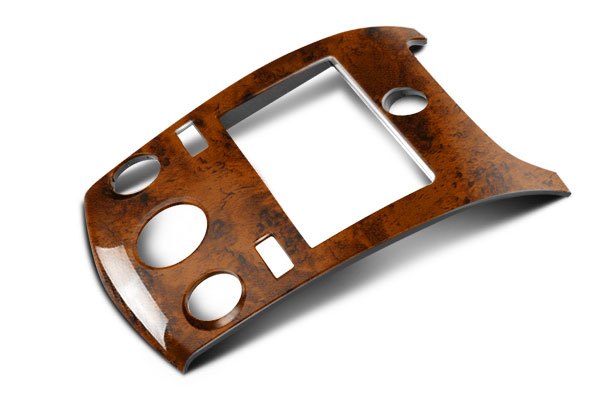دسته بندی ها
مهم نیست که آیا شما علاقه مند به رانندگی تعطیلات آخر هفته هستید یا یک مسابقه حرفه ای را دوست داریددر هر صورت شما نیاز به رعایت قوانین رانندگی دارید ،که این قوانین باعث مهار خطرات می شود. یکی از این قوانین بستن کمربند ایمنی میتسوبیشی اوتلندر LIMITED 2016 | قیمت کمربند ایمنی میتسوبیشی اوتلندر LIMITED 2016 | فروش کمربند ایمنی میتسوبیشی اوتلندر LIMITED 2016 | انواع کمربند ایمنی میتسوبیشی اوتلندر LIMITED 2016 | خرید کمربند ایمنی میتسوبیشی اوتلندر LIMITED 2016 است .ما همچنین انتخاب زیادی از انواع صندلی میتسوبیشی اوتلندر LIMITED 2016 | قیمت صندلی میتسوبیشی اوتلندر LIMITED 2016 | فروش صندلی میتسوبیشی اوتلندر LIMITED 2016 | انواع صندلی میتسوبیشی اوتلندر LIMITED 2016 در اندازه های مختلف و رنگ های مطابق با رنگ ماشین شما ارائه می دهیم. تا اطمینان و راحتی شما را فراهم کنیم و از انواع میتسوبیشی اوتلندر LIMITED 2016 | لوازم یدکی میتسوبیشی اوتلندر LIMITED 2016 | لوازم میتسوبیشی اوتلندر LIMITED 2016 | قطعات میتسوبیشی اوتلندر LIMITED 2016 | قطعات یدکی میتسوبیشی اوتلندر LIMITED 2016 | لوازم اسپرت میتسوبیشی اوتلندر LIMITED 2016 و لوازم جانبی دیگر ، از جمله پیچ، صفحات و اتصالات قلاب ضربه ای استفاده کنیم. پس هرگاه نیاز به تعویض کمربند داشتید به سایت ما سر بزنید.در اواسط قرن نوزدهم اختراع شد، اما تا اوائل قرن بیستم، آنها به طور گسترده ای مورد استفاده قرار نگرفتند و پس از آن در هواپیما بودند. اگرچه شواهد فراوانی از مرگ و میر ناشی از حوادث ناشی از حمل و نقل وسایل نقلیه ناشی از مسافران در داخل کابین و یا از خودرو خارج شده است، اما دهها ساله، خودروسازان تمایلی به نصب کمربندهای خود ندارند. آنها در سالهای 1950 به عنوان تجهیزات اختیاری عرضه شدند و در دهه 1960 اجباری شدند.اولین مورد نیاز کمربندهای بود. در سال های 1970، کمربندهای سه لبه و کمربند شلواری مورد نیاز شد. امروزه کمربندهای 3 نقطه طراحی شده اند که بدن شما را در موقعیت مناسب برای راه اندازی کیسه هوا در صورت وقوع تصادف نگه دارد. در مقایسه با کمربندهای صندلی اتومبیل، مهارهای مسابقه در کمربندهای شانه کمرنگ نیستند و معمولا دارای نقاط دلبستگی برای جلوگیری از رانندگی و محافظت در برابر تصادف با سرعت بالا هستند. با وجودی که مهارهای 3 نقطه وجود دارد که کمربندهای بیش از هر شانه است، اما با یک نقطه دلبستگی، مهارهای 4 نقطه، کمربند کمربند و دو کمربند شانه بیشتر شایع است.مهار 5 دنده یک کمربند بین پاها را برای جلوگیری از رانندگی از زیر دریایی از کمربند کمربند در یک تصادف اضافه می کند. مهار 6 نقطه شامل یک کمربند اضافی در همان محل، با کمربندهای اطراف پاها. مهار 8 نقطه دارای کمربند اضافی بیش از هر شانه است. در بیشتر مهارها، تمام کمربندهای خود را به یک لنگر سریع و یکپارچه متصل می کنند که امکان خروج سریع از کابین خلبان را فراهم می کند. برخی از مهارها طراحی شده اند که با محدودیت سر و گردن مانند دستگاه HANS مورد استفاده قرار می گیرند و بسیاری از مهارتی ها با انتخاب عرض کمربند، سبک تنظیم، نوع گیره، روش پیوستن و رنگ موجود است.حتی در مسابقات موتور، استفاده از بحث برانگیز بود. حکمت غالب در میان برخی از رانندگان در اولین روزهای مسابقه این بود که بهتر بود قبل از تصادف از ماشین بیرون بیاییم و چون آتش سوزی خطر همیشه در حال حاضر در مسابقه بود، رانندگان می ترسیدند که را تسخیر کنند آنها در ماشین. در نهایت نگرش شروع به تغییر کرد و SCCA (باشگاه ورزشی خودرو آمریکا) را برای رانندگان در سال 1954 مورد استفاده قرار داد.
....................................................................................................................
It does not matter if you are interested in driving on a weekend or a professional race, in any case you need to follow the rules of the road, which will reduce the risk. One of these rules is to fasten seat belts and vests. 2016 mitsubishi outlander limited seat belt&page=2 | 2016 mitsubishi outlander limited seat belt&page=2 sale | 2016 mitsubishi outlander limited seat belt&page=2 buy | 2016 mitsubishi outlander limited seat belt&page=2 price . We also offer a large selection of car belts in different sizes and colors to match the color of your car. To provide your safety and comfort and use a variety of 2016 mitsubishi outlander limited | 2016 mitsubishi outlander limited parts | 2016 mitsubishi outlander limited accessory | 2016 mitsubishi outlander limited parts sale | 2016 mitsubishi outlander limited parts buy | 2016 mitsubishi outlander limited parts price and other accessories, including screws, plates and impact hook fittings. So visit our site whenever you need to change your seat belt. Seat belts were invented in the mid-nineteenth century, but they were not widely used until the early twentieth century and were then on the plane. Although there is ample evidence of fatalities in passenger car accidents caused by in-cab or out-of-car vehicles, for decades, automakers have been reluctant to wear seat belts. They were introduced as optional equipment in the 1950s and became mandatory in the 1960s. The first seat belts required were seat belts. In the 1970s, three-edged belts and trouser belts were required. Today, 3-point belts are designed to keep your body in the right position to launch an airbag in the event of an accident. Compared to car seat belts, racing restraints on shoulder belts are not light and usually have attachment points to prevent driving and protect against high-speed crashes. Although there are 3-point restraints that are more than one shoulder strap, with one attachment point, 4-point restraints, a belt loop, and two shoulder straps are more common. A sea of belts adds a belt in an accident. 6-point harness includes an extra belt in the same place, with belts around the legs. 8-point harness has an extra belt over each shoulder. In most restraints, all belts are attached to a fast, integrated anchor that allows for a quick exit from the cockpit. Some restraints are designed to be used with head and neck restrictions, such as the HANS, and many skills are available with a choice of belt width, adjustment style, clamp type, joining method, and color. Seat belts were controversial. The prevailing wisdom among some drivers in the early days of the race was that it was better to get out of the car before the accident, and because fire hazards were always present in the race, drivers were afraid to grab their seat belts in the car. Eventually, attitudes began to change, and the SCCA (American Automobile Sports Club) introduced seat belts for drivers in 1954.
اکثر کمربند ایمنی میتسوبیشی اوتلندر LIMITED 2016 موجود در بازار اصلی ، تایلندی ، تایوانی ، چینی و ساخت کشور تولید کننده خودرو میباشند.
قیمت کمربند ایمنی میتسوبیشی اوتلندر LIMITED 2016 به متریال استفاده شده در ساخت و چگونگی تولید کمربند ایمنی و از همه مهمتر ساخت کدام کشور است دارد
باید از جایی که کمربند ایمنی میتسوبیشی اوتلندر LIMITED 2016 خریداری میکنیم با فروشنده تمام موارد رو که مد نظر مون هست چک کنیم از قبیل : ساخت کجاس ، چه قیمت است و آپشن های که کمربند ایمنی دارد و .....
از جایی که تخصص آنها لوازم اسپرت میتسوبیشی اوتلندر LIMITED 2016 است و بهترین مشاوره رو در خرید کمربند ایمنی میدن
Most of the 2016 mitsubishi outlander limited seat belt&page=2 available in the world depend on which country it is produced in, but usually the 2016 mitsubishi outlander limited seat belt&page=2 are original,
Chinese
The price of the 2016 mitsubishi outlander limited seat belt&page=2 depends on the material used in the production of the 2016 mitsubishi outlander limited seat belt&page=2, most importantly, in which country it is made
since their specialty is 2016 mitsubishi outlander limited seat belt&page=2 they give the best advice on buying 2016 mitsubishi outlander limited seat belt&page=2 and after sales services
we should check with the seller all the things that we want from the place where we buy the 2016 mitsubishi outlander limited seat belt&page=2, such as: where is it made, what is the price, and the options that the 2016 mitsubishi outlander limited seat belt&page=2 has, etc
مارا دنبال کنید
Copyright © 2016-2020 KHODROID.com. All rights reserved.
طراحی سایت توسط نونگار پردازش



























